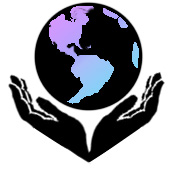The Feminist Diversifying, Unifying, Globalizing Process
created by: Jasica Chiang & Sophie Wang

"Feminism in one country is not sustainable -- we need feminism on a global scale."
- Women in Development Europe, 1995
The Feminist Diversifying, Unifying, Globalizing Process created by: Jasica Chiang & Sophie Wang
|
Global Justice The primary goal of the global justice movement is to provide an alternative to capitalist globalization that is grounded in human rights. The global social movements of women and transnational feminist networks feed into this larger movement by criticizing neoliberal capitalism and endorsing a kind of global economics that includes decent labor rights and human rights. [1] What the Global Justice Movement Opposes
What the Global Justice Movement Proposes
One version of the Global Justice Movement also has the acronym G.R.A.C.E. to define its principles, which are as follows.[2]
The World Social Forum The World Social Forum, the annual meeting held by members of the global justice movement to coordinate world campaigns, share and develop organizing strategies, and inform each other about movements from around the world, was created as an alternative to the neoliberal World Economic Forum (WEF), held annually in Davos, Switzerland. Often criticized for being mostly based on discussion and philosophical debate with little practical implications, the WSF is nonetheless one of the key groups in the global justice movement that is working towards open dialogue between all nations and groups that are interested in and dedicated to alternative ways of global economic and political governance. Because of its plurality and diversity, and its non-confessional, non-governmental, and non-party nature, it is able to facilitate open dialogue at any level without the constraints faced by other organizations.[3] Perhaps the most important aspect of the World Social Forum -- and the most relevant to the Feminist Diversifying/Unifying/Globalizing Process -- is that it allows people from a range of different social movements to come together to debate, share ideas, and link their agendas for social change.[4] This means that women's issues and feminist goals can be incorporated in the broader movement, and so feminists have a place for debate and discussion on a global scale. Still more importantly, feminists should participate in the global justice movement, for only then can feminist issues and concerns be incorporated into the process of reshaping the world. The challenge for most feminists who are engaged in these movements lies in their youth and the youth of the World Social Forum itself -- having only just had its 7th meeting in 2007, it is still a relatively new phenomenon and thus vulnerable to attack. Thus, it is critical for women to promote participation at all levels within the current social movements, at the very basic level with specific feminist platforms as well as on a broader scale with the global justice movement. Youth is not an obstacle; after all, "one day we will no longer be young, bt will will continue to be black, poor, immigrants, Indians, lesbians, rural...the heterogeneity of young people is the same as that of the movements in which we participate."[5] |
|
||
|
|||
References: Global Justice Banner created from photographs from www.laohamutuk.org, www.indymedia.ie, www.positivenewsus.org, www.all4all.org [1] Valentine M. Moghadam. Globalizing Women: Transnational Feminist Networks. Baltimore: The Johns Hopkins University Press, 2005. pp 19-20. |
|||